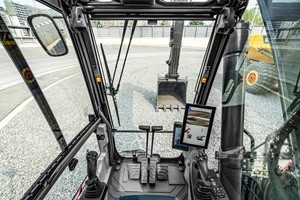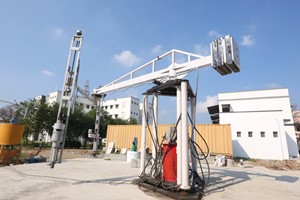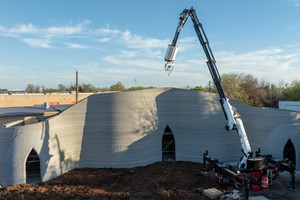Modular construction has emerged as a transformative force within the global construction industry, attracting major players like Bouygues, Skanska, Katerra, and others. This innovative approach addresses critical challenges such as housing shortages, rising costs, and labor constraints, positioning itself as a pivotal solution in the contemporary built environment landscape.
Overview of Modular Construction
Modular construction involves prefabricating building sections off-site in controlled factory environments, which are then transported to the construction site for assembly. This method contrasts with traditional on-site construction, offering advantages such as reduced construction timelines, cost-effectiveness, and enhanced sustainability.
The appeal of modular construction extends across diverse sectors, including residential development, hospitality, and public infrastructure. Its ability to streamline processes, mitigate construction risks, and deliver consistent quality has garnered attention from stakeholders worldwide.
Market Dynamics and Growth Drivers
The adoption of modular construction is particularly robust in Western Europe and North America, driven by several key factors. These regions face pressing demands for affordable housing and infrastructure solutions amidst urbanization and population growth. Moreover, the efficiency gains and cost savings associated with modular methods make it increasingly attractive to developers and governments alike.
In the UK, US, and Australia, modular construction has established itself as a lucrative market segment, supported by regulatory incentives and growing consumer demand for sustainable, rapidly deployable housing solutions. Companies like Katerra have capitalized on this trend, leveraging advanced technologies and supply chain efficiencies to establish themselves as leaders in the field.
Key Players and Innovations
Skanska: As a prominent Swedish construction firm, Skanska has leveraged modular construction through subsidiaries like BoKlok and BoKlok Building System. These entities focus on sustainable residential housing solutions, utilizing Building Information Modeling (BIM) and prefabrication techniques to ensure precision and efficiency. Skanska's modular homes have been successfully deployed across Scandinavia and the UK, showcasing the scalability and adaptability of their approach.
Bouygues: The French conglomerate Bouygues has expanded its footprint in modular housing across Europe. By integrating digital twins and virtual reality simulations, Bouygues optimizes design processes and enhances collaboration among stakeholders. This approach has enabled Bouygues to deliver modular projects that meet diverse residential and temporary accommodation needs, reflecting their commitment to innovation and customer-centric solutions.
Laing O'Rourke: In the UK, Laing O'Rourke has pioneered the application of Design for Manufacture and Assembly (DfMA) principles in modular construction. This methodology emphasizes standardized components and off-site manufacturing, achieving significant efficiencies in project delivery and cost management. Laing O'Rourke's modular housing projects underscore the transformative impact of DfMA on construction timelines and sustainability outcomes.
NELCO: Operating out of the Netherlands, NELCO specializes in modular construction for residential and student housing. By embracing robotics and advanced manufacturing techniques, NELCO enhances production efficiency and quality control. Their projects across Europe highlight the scalability and performance advantages of modular methods in meeting diverse housing demands.
Katerra: Based in the US, Katerra exemplifies a technology-driven approach to modular construction. Through proprietary software platforms and advanced supply chain management systems, Katerra streamlines the entire construction process—from design to delivery. This integration of technology not only accelerates project timelines but also enhances cost-effectiveness and sustainability, positioning Katerra as a leader in the global modular construction market.
Landmark Group of Builders: In Canada, Landmark Group of Builders has established a dedicated modular division known as Landmark Modular. Integrating cutting-edge technologies like 3D printing and augmented reality (AR), Landmark Modular accelerates prototyping and on-site assembly guidance. Their projects across Canada demonstrate the versatility and innovation inherent in modular construction methodologies.
Industry Impact and Future Outlook
The rise of modular construction represents a paradigm shift in the construction industry, characterized by increased efficiency, sustainability, and scalability. As technological advancements continue to drive innovation, modular methods are expected to play a pivotal role in addressing global housing needs and infrastructure challenges.
Looking ahead, the industry is poised for further expansion as more companies invest in research and development, regulatory frameworks evolve to support modular initiatives, and consumer preferences shift towards sustainable building practices. Emerging trends such as modular skyscrapers and integrated smart technologies are likely to reshape urban landscapes, promoting more resilient and resource-efficient cities.
Modular construction stands at the forefront of industry innovation, catalyzing transformative change across global markets. With major construction companies embracing its potential and advancing technological frontiers, the future promises a built environment that is not only efficient and cost-effective but also sustainable and responsive to evolving societal needs. As stakeholders continue to collaborate and innovate, modular construction will continue to redefine the future of urban development and infrastructure worldwide.
By Kitty Wheeler











